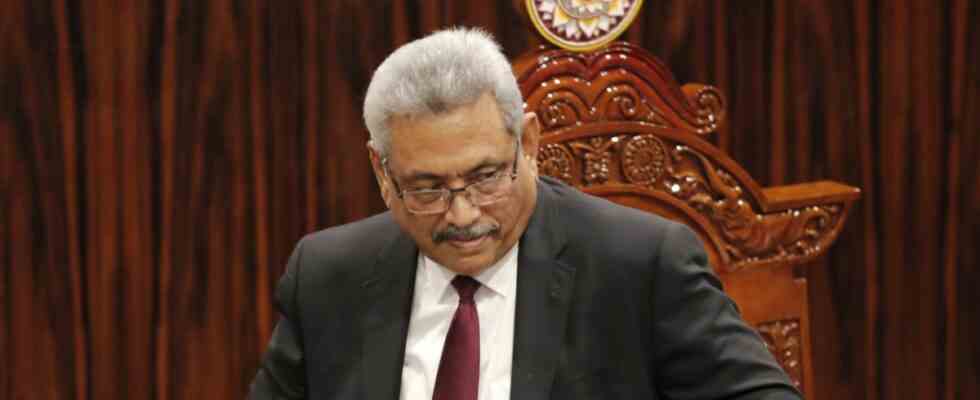Sri Lanka’s de facto ousted President Gotabaya Rajapaksa left the crisis state by plane on Wednesday night. A military plane with Rajapaksa and his wife on board landed at the Maldives’ capital airport in Male early in the morning, the local authorities confirmed. An official with the Sri Lankan Immigration Service told Reuters that under the law, the authorities cannot prevent an incumbent president from leaving the country. Rajapaksa had announced his resignation for this Wednesday.
During mass protests in recent months, demonstrators have demanded the resignation of the 73-year-old and Prime Minister Ranil Wickremesinghe. According to a BBC report, the news of Rajapaksa’s departure sparked spontaneous cheers among demonstrators in Sri Lanka’s capital Colombo.
As a result of the worst economic crisis in decades, political chaos has also reigned in Sri Lanka. The protests took on new dimensions over the weekend when tens of thousands of people demonstrated against the government in Colombo. A few hundred of them also managed to storm the Presidential Palace and Office and the Prime Minister’s official residence. Pictures of demonstrators in the pool of the luxurious presidential palace went around the world.
Parliament is due to elect a new president in a week
Under pressure from the streets, Rajapaksa finally announced his resignation this Wednesday, but the demonstrators demanded his immediate resignation and wanted to continue their protests until then. In addition, together with the opposition, they also called for the resignation of Prime Minister Wickremesinghe and threatened nationwide strikes from Thursday if both had not resigned from their posts by then. Wickremesinghe had at least offered to withdraw at the weekend. On July 20, Parliament is to elect one of its members to be the new President.
The island state south of India, with around 22 million inhabitants, is going through the worst economic crisis since independence from Great Britain in 1948. The anger of the demonstrators is fueled, among other things, by the lack of fuel and gas for cooking, which has existed for months, but also by the lack of medicine and food . High inflation and hour-long power outages also cause great resentment. One reason for this is that income from important tourism has collapsed in the wake of the corona pandemic. The heavily indebted country lacks the money to import important goods.
In view of the crisis, the government has asked the International Monetary Fund, India, China, Russia and other countries, among others, for help. The UN Emergency Relief Office warned in June that the economic situation could exacerbate a looming hunger crisis in Sri Lanka. The country had previously been on a good development path for ten years and had managed without UN humanitarian aid.

